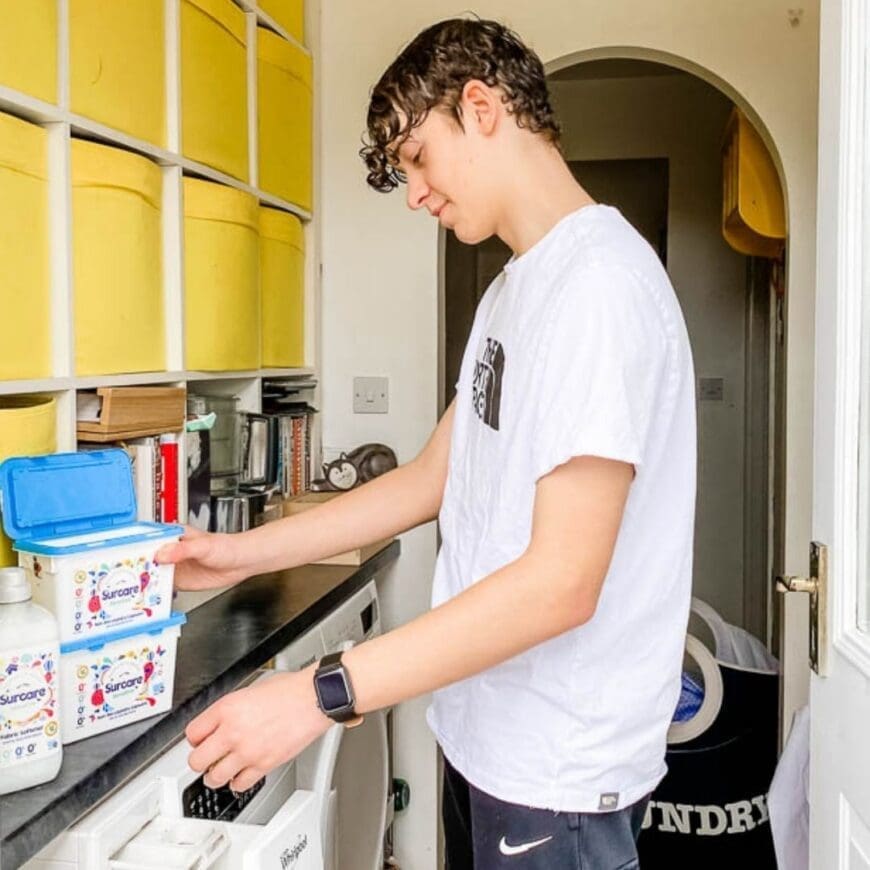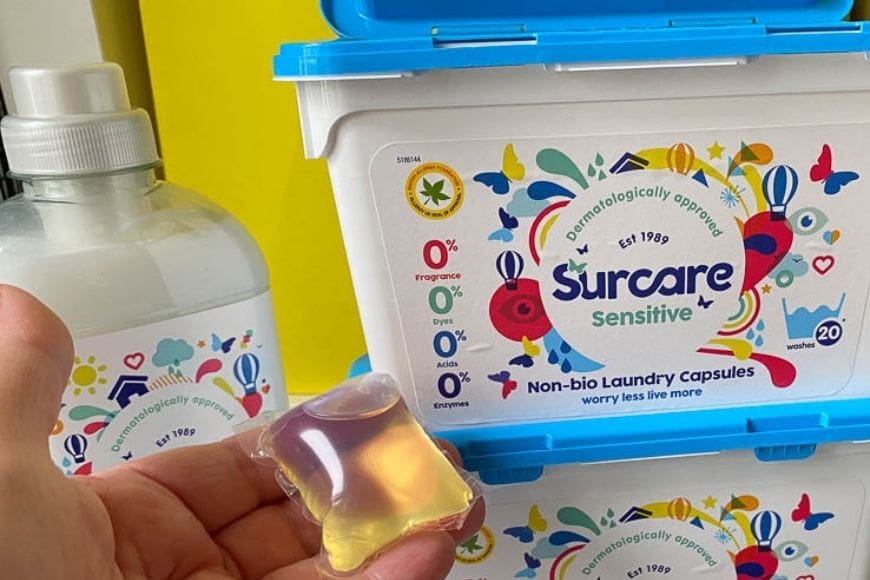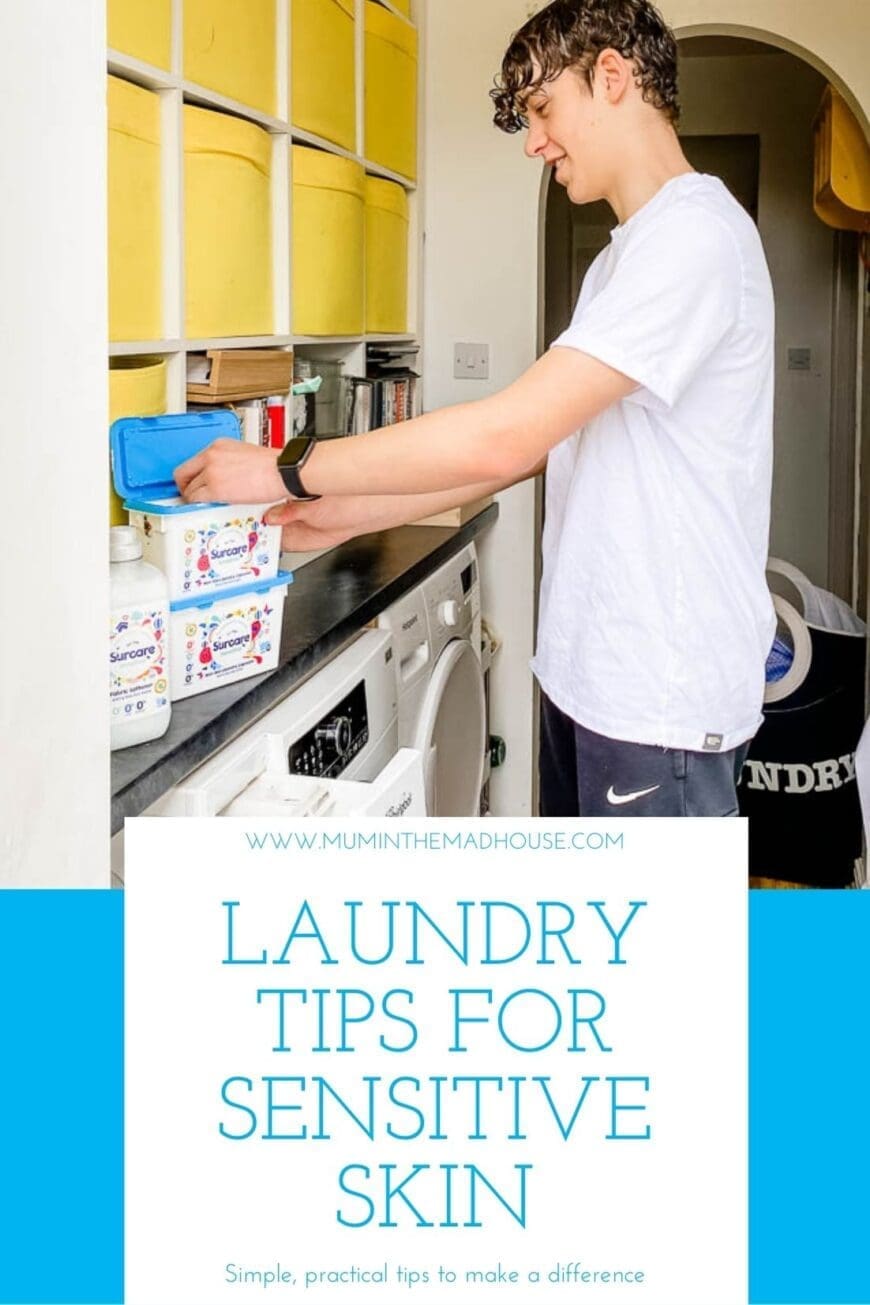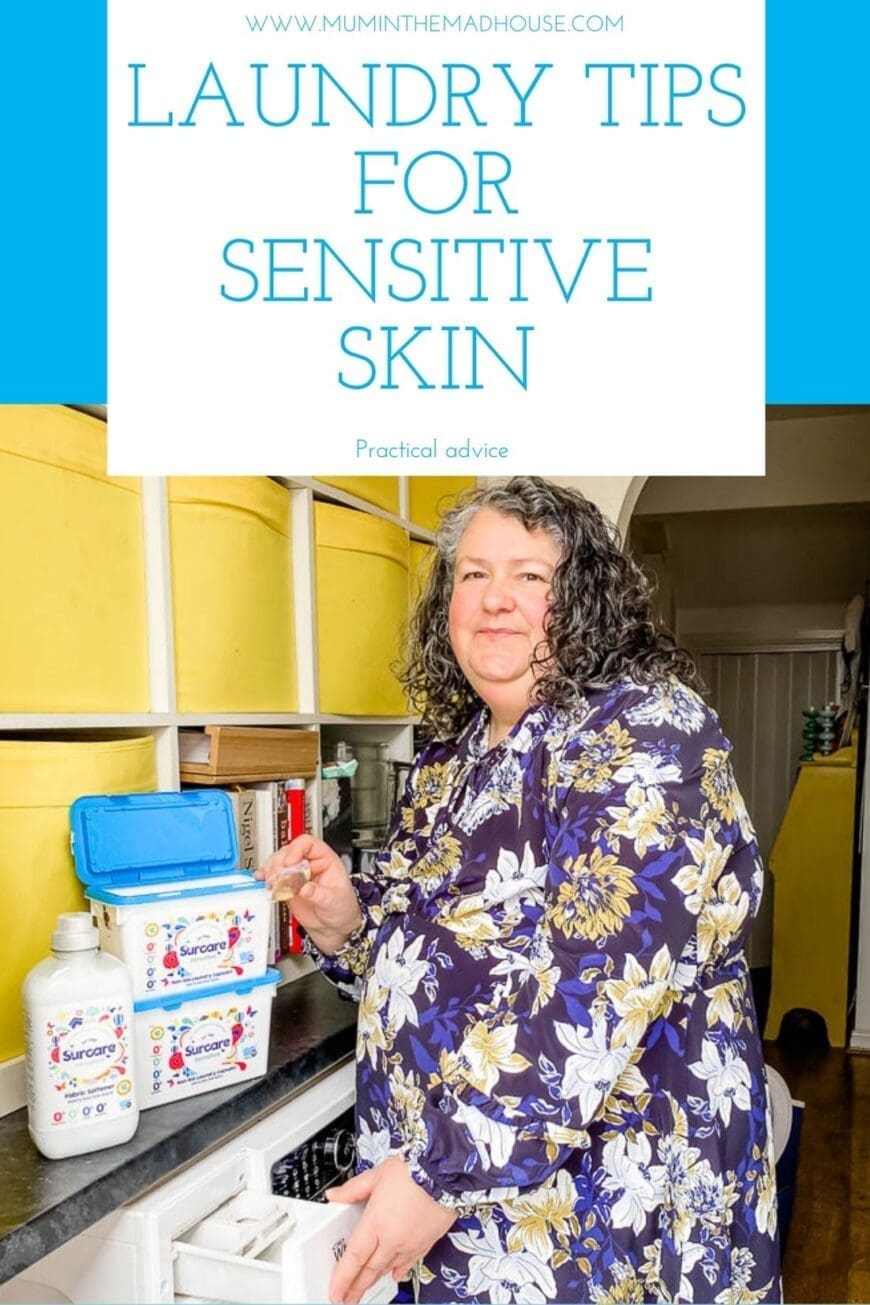Laundry Tips for Sensitive Skin is a paid collaborative post with Surcare UK. We are a house where 50% of the household has eczema and skin issues (well 3 out of 5 of us if you count Alvin the dog as he has issues too) and this means that we have to take a lot of care over laundry products and such. I am always really are when it comes to moving from one product to another one.

Surcare products are specially formulated to be kinder to sensitive skin but also to provide an outstanding cleaning performance each and every time and are approved by Allergy Care UK, which does initially give me some peace of mind before trying it out for our sensitive and reactive family.

What I love about Surcare products is that they don’t contain unnecessary ingredients that could irritate skin, so no enzymes, dyes, acids or perfumes but they also are up to keeping my family and especially the sporty boys’ clothes clean and fresh-smelling without added fragrance.
One of the best ways as a mum that I can look after my children’s skin is to teach and empower them to take responsibility for it themselves.

I am a firm believer in my children doing household chores and, therefore, we have found the Surcare Non-Bio Laundry Capsules a real godsend. Previously we have been using a competitor’s products and have found their capsules hard to get locally so had resorted to using laundry liquid and no matter how many times I showed the boys how much to use they always used more! Not only did that mean that it worked out more expensive, but it also leads to a build-up of product in clothes which isn’t great for the life of clothes or for sensitive skins.

Laundry Tips for Sensitive Skin
Wash anything new before it’s first wash. New clothes and fabrics will often include starch or other products on them to make them more appealing at the store.
Wash anything that has been stored. Wash your seasonal clothes before wearing. They can get dusty which may aggravate skin conditions.
Regularly clean your washing machine. The detergent draw of your washing machine can easily become clogged with the excess product and this can encourage mould to grow in the draw.
Rince. Use your additional rinse cycle or extra water cycle on your machine, this will ensure that as much dirt and detergent is rinsed out as possible.
Don’t drop the fabric conditioner. It can be tempting to keep products to a minimum, however, a fabric softener is designed so the tiny fibres of your clothes are smoothed down, the fabric becomes much softer than using just detergent alone. Less scratchiness means less irritation for sensitive skin and babies.
Pretreat stains. Over the years I have learned that you can not expect a product that is kind on the skin to remove every stain, so now we pretreat any stains straight away before washing them. The extra rince ensures that any product is removed.
Don’t use too much product. This is where the Surcare Non-Bio Capsules come into their own. Ensuring the right dose for your laundry load. This protects the skin from overuse of products, so clean clothes without colour fade, skin reactions or product build-up. This makes it the perfect solution for our sensitive and eczema-prone skins, plus it means I leave the washing to the males in the house!

We are currently in a really good place when it comes to being on top of my eldest’s Eczema. We have just been through a really hard flare due to growing and hormones. He is brilliant at taking ownership of his skin. He moisturises, uses paraben and SLS free products and is amazingly aware of skincare and the effects it has on his skin. We have learned over the years that consistency is important, however, that things that didn’t work at first can be worth trying again.
